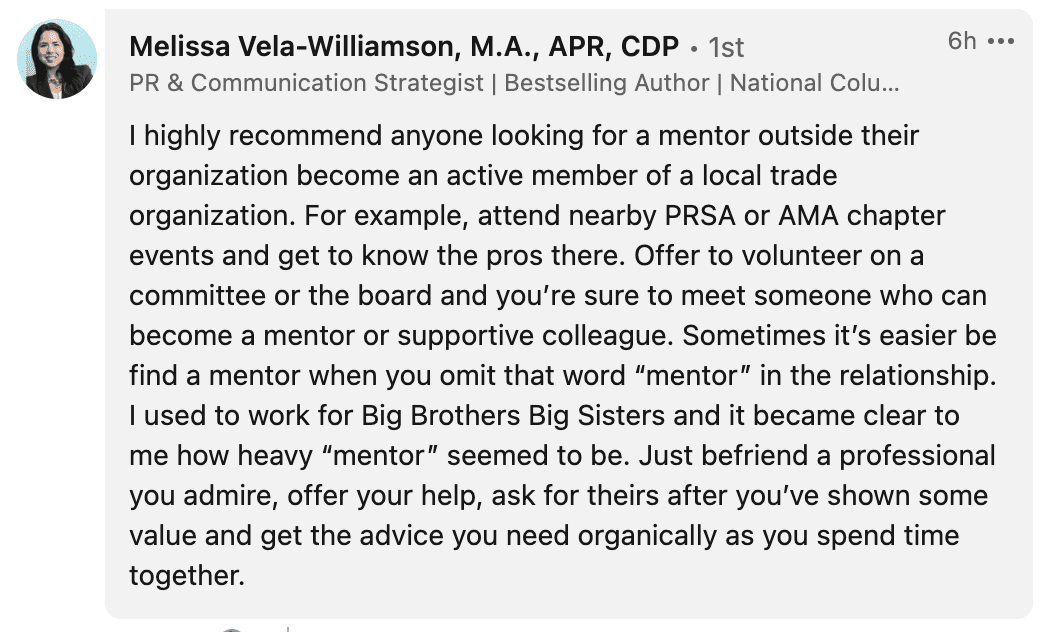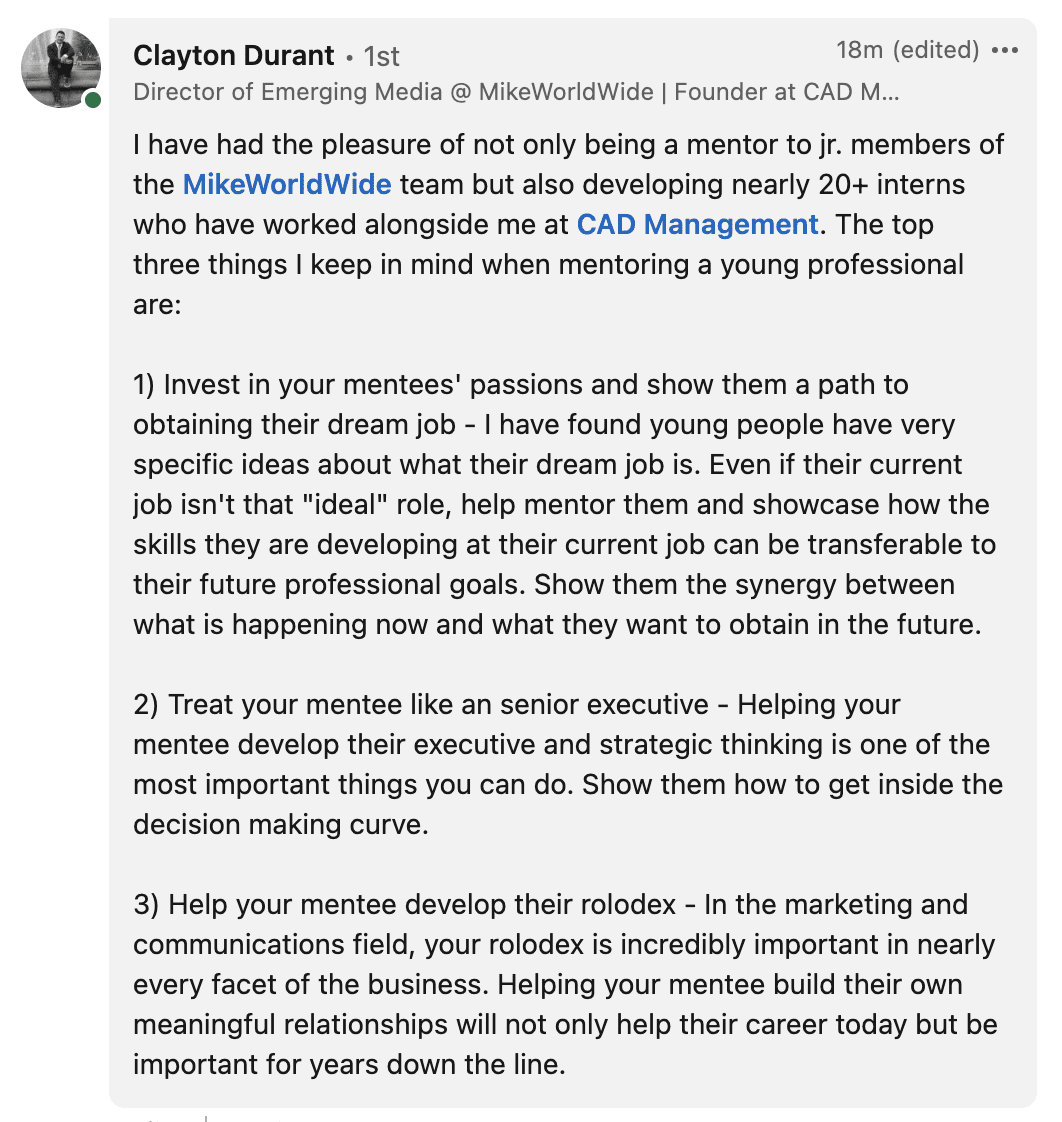
Having a mentor is a good career decision.
However, many find seeking a mentor intimidating. Many others who want to serve as a mentor may not know where to start or how to conduct such a relationship.
For this edition of Top Five, we asked communicators for advice about mentoring—whether you are the mentee or mentor. Here are our top five answers (in no particular order).
Tip #1: Find a mentor who is your opposite.

Tip #2: Look outside your organization for mentorship opportunities.

Tip #3: Mentors can learn just as much from mentees.
Experienced pros bring their years of knowledge to the table, but we can learn a lot from those just entering the profession. I like having two-sided conversations.
— JoLynne Jensen Lyon (@JJLyonStories) January 17, 2023
Tip #4: Go beyond the norm to help mentees develop.

Tip #5: Embrace all sides, not just the good stuff, in a mentorship.
Be authentic. Share your challenges as well as your triumphs. Get to know your mentee’s career aspirations, suggest courses or conferences for them to pursue/attend, introduce them to industry players, and be a sounding board for their ideas.
— Roddena Kirksey (@roddena_kirksey) January 17, 2023
Bonus Tip:

Nicole Schuman is senior editor for PRNEWS. Follow her @buffalogal
